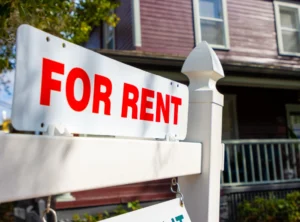3 Common Ways to Botch An Eviction

Every landlord wants to avoid the nightmare of the tenant who falls behind or runs out on the rent.
It€„¢s even more of a headache now that the backlog of eviction cases is causing extraordinary delays.
Those delays cost landlords a ton of money. But trying to circumvent the legal eviction process can cost you even more.
Here are three common mistakes that make the situation even worse €”causing landlords to pay damages to tenants, and even face criminal liability:
The ‘Self-Help’ Eviction
Although you may have ample reason to dislike a tenant, unless you have the legal right to evict them – unpaid rent, breached the lease, broke the law, etc., you cannot try to force them to leave on their own by:
- threatening harm, intimidation, harassment
- interfering with their property
- entering the premises (without the legal right)
- changing locks
- cutting power or services
While laws and penalties vary from state to state, it is safe to say that ‘self-help’ evictions are illegal, and both the police and the courts will be on the tenant’s side.
Holding Property Ransom
The common conception that a landlord automatically has a ‘lien’ on the tenants property has been widely abandoned, in favor of very specific statutes on the subject.
In fact, taking possession of property prior to an eviction is illegal in some states. Know what the law is in your state before you enter the premises and ‘seize’ property. For example, does your state allow for a landlord’s lien without an eviction? What are the legal requirements of a lien? In many cases, the right to the lien must be conspicuously stated in the lease, in bold, underlined, or initialed by the tenant.
Even if you have the right to a lien, you cannot take the property by breaking the law. For instance, you must have the right to enter the premises clandestinely. Also, you may be restricted to property that is ‘non-exempt’ – things like televisions and not clothing. And the proceeds may have to satisfy only rent – not other charges.
Who can ignore the case of the boarding school who refused to allow a student to visit with parents during Holiday Break until the board was paid? Needless to say, the damages for emotional distress outweighed the debt owed. Same can be true of taking pets, sentimental items, or tools and bikes needed for work.
Selling or Destroying ‘Abandoned’ Property
Deciding what constitutes ‘abandoned’ property is itself a sticky legal issue. Heavy documentation is always a good idea.
In many, if not most states, the landlord has a duty to protect the tenants€„¢ property until they’ve had an adequate amount of time to collect it. That includes protecting it from contractors who are in the unit getting it ready for the next tenant. Kicking property to the curb may not be an option. Nor is giving it away. Make sure you know what’s required of you, or you may be paying the tenant, not the other way around.
For more, see 12 Eviction Mistakes That Can Sink You.
American Apartment Owners Association offers discounts on products and services related to your commercial housing investment including REAL ESTATE FORMS, tenant debt collection, tenant background checks, insurance and financing. Find out more at www.joinaaoa.org.
To subscribe to our blog, click here.













 Accessibility
Accessibility